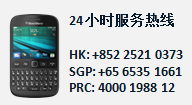Mexico

Iron Ore
Key Advice
It is important to verify the source of a cargo, before shipment, as it is not merely the "physical safety", but also the "legal safety" which concerns owners, charterers and traders.
The commodity boom of the last decade has seen a number of countries challenged by illegal and unlawful activities with relation to mining and export of raw materials.
Members are well advised to ensure they mitigate these risks by conducting due diligence before fixing a voyage.
Furthermore, shipowner members are reminded that they should always ensure they comply with the ISPS Code, including regular reviews and training for both ship and shore based staff. Security concerns at ports around the world are very much a live issue in recent times, and this trend is continuing.
The Local Situation
Members may be aware of recent shipping news reports as well as a BIMCO circular about iron ore shipments from Mexico that may be linked to unlawful activities. The Association consulted with its local correspondents in order to establish further details and can now advise as follows:
- in recent years, a Mexican drug cartel, called the "Knights Templar", took control of several mines in the states of Michocan and Colima. Further, they had influence in ports of Lazaro Cardenas, located in Michoacan and Manzanillo, located in Colima. The mining and shipment of iron ore was a principle source of income, and on the basis of information our correspondents have from the Mexican Government, the cartel was making USD15 for every metric ton arriving in port;
- in the past, the Mexican Government had issued 900 concessions in Michoacan to mine iron ore. In 2008, only 1.5 percent of the iron ore exports to Asia went through the state´s port of Lazaro Cardenas, but by 2012, nearly half of the exports to Asia were processed there;
- in response to the criminal activity, the Mexican Government has been taken action, instructing the Mexican Navy to take the control in the ports of Manzanillo and Lazaro Cardenas. At present the Maritime Port Authority in both ports are commanded by the navy, and in the same manner, the Port Administration (API) in both ports are managed by navy admirals. Further steps included changes to local laws, in particular to a local navigation law in which the Government inserted new articles regarding the security operations inside the ports which will be performed exclusively by the Mexican Navy.
- on the basis of these developments, our correspondents have recommended that any member who is planning on lifting a cargo of iron ore from Mexico should request the following documents prior to finalizing a contract or fixture:
4.1. the appropriate "Export Permit" issued by the Mexican Ministry of Economy which must be valid for the relevant time period of the shipment;
4.2. confirm and verify that the shipper/exporter had been registered in the "Sectorial Exports Census", if they are not so registered they can not legally engage in the exportation of iron ore from Mexico;
4.3. request the name of the mine from which the iron ore was extracted, and afterwards verify that it is registered, there is further relevant information to be found here (in Spanish): http://www.siam.economia.gob.mx/es/siam/2013;
4.4. in addittion to the above point 4.3. it is also possible to search the name of the shipper and/or company in the miming sector directory established by the Mexican Government pursuant to the the following link (also in Spanish): http://www.desi.economia.gob.mx/empresas/directorio.htm
In summary, shippers should be asked to provide all the relevant and necessary documents that prove the legal origin of the iron ore, in advance of any fixture, so that members can protect their interests, these include the following documents:
A) Export Permit in force issued by the Ministry of the Economy
B) Register number in the Sectorial Export Census
C) Name of the company that sold the iron ore to the shippers (in the event that shippers are not the actual producers) and afterward carry out a due diligence search for the company, including by way of the above referenced links
ISPS Code
Shipowner members will of course be very familiar with the terms and rules of the International Ship and Port Facility Code (the "ISPS" Code), and it is opportune to remind members at this point that compliance with the Code does require risk assessments before calling at a port.
This risk assessment should be conducted irrespective of whether there is an elevated security level (Level two or three) in place for any particular port.
Members should always conduct their own risk assessment, in particular where they may be aware of security concerns at any given location, and ensure the vessel is suitably prepared to meet local conditions, in particular where these may be of a fluid or changeable nature.
Liquefaction Risks
The Association has previously advised in detail on the risks of liquefaction of bulk mineral ore cargoes, and the Club's previous advices can be found here.
Iron ore is a cargo that is prone to these risks, and this risk is likely to be increased if the ore originates from non-licensed or illegal operations.
Members should seek to provide their masters with a copy of the Club's Pocket guide which can assist masters and chief officers deal with such cargoes, but it is important to stress that risk management for such issues starts before the fixture stage.
If any Member's vessel has a concern about a possible liquefaction problem, the Master should not hesitate to seek immediate assistance from the Club's local correspondent.
Should Members have further queries in respect of these matters, they are asked to contact the Association: lossprevention@skuld.com.





